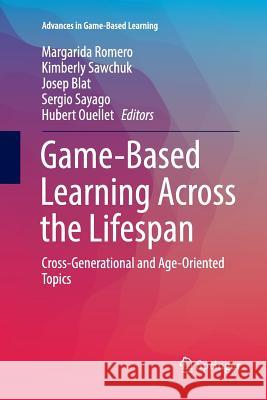Game-Based Learning Across the Lifespan: Cross-Generational and Age-Oriented Topics » książka
topmenu
Game-Based Learning Across the Lifespan: Cross-Generational and Age-Oriented Topics
ISBN-13: 9783319824314 / Angielski / Miękka / 2018 / 154 str.
Kategorie:
Kategorie BISAC:
Wydawca:
Springer
Seria wydawnicza:
Język:
Angielski
ISBN-13:
9783319824314
Rok wydania:
2018
Wydanie:
Softcover Repri
Ilość stron:
154
Waga:
0.24 kg
Wymiary:
23.39 x 15.6 x 0.89
Oprawa:
Miękka
Wolumenów:
01
Dodatkowe informacje:
Wydanie ilustrowane











